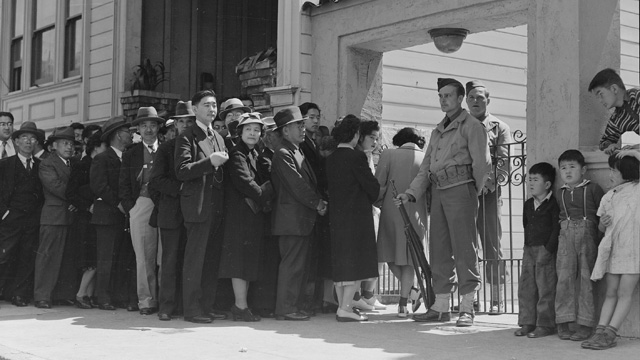In 1942, President Franklin Roosevelt signed Executive Order 9066, authorizing the wartime incarceration of Japanese-Americans in what he called “concentration camps.” A few Japanese Americans defied that order. One of them, Gordon Hirabayashi, broke curfew and refused to go to camp. He became the face of one of the defining Supreme Court cases of that period, Hirabayashi v. United States. Approaching the 70th anniversary of the case, we talk with Gordon’s nephew Lane Hirabayashi about his uncle’s life and legacy.
'A Principled Stand': Hirabayashi v. the United States

(Wikimedia Commons)
Guests:
Lane Hirabayashi, professor in Asian American Studies and Chair of the Japanese American Incarceration, Redress, and Community at UCLA; and nephew of Gordon Hirabayashi
Sponsored